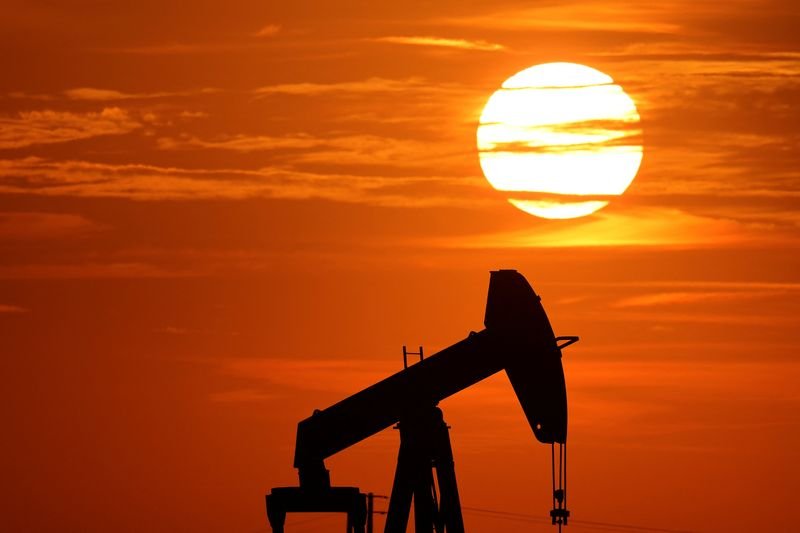US tariff threat limits oil prices
Published by Global Banking & Finance Review®
Posted on January 30, 2025
3 min readLast updated: January 27, 2026

Published by Global Banking & Finance Review®
Posted on January 30, 2025
3 min readLast updated: January 27, 2026

US tariff threats on Canadian and Mexican crude imports influence oil prices, with OPEC+ set to discuss US production efforts.
By Erwin Seba
HOUSTON (Reuters) -Oil prices edged up on Thursday, held in check by threatened U.S. tariffs on Canadian and Mexican crude imports that could take effect this weekend.
Brent crude futures settled 29 cents, or 0.4%, higher at $76.87 a barrel. U.S. crude futures finished at $72.73 a barrel, up 11 cents, or 0.2% higher than Wednesday, when they settled at their lowest level this year so far.
"We're getting close to the deadline and people are getting nervous," said Phil Flynn, senior analyst with Price Futures Group.
U.S. President Donald Trump has threatened to impose a 25% tariff as early as Saturday on Canadian and Mexican exports to the United States if those two countries do not end shipments of fentanyl across U.S. borders.
The White House on Tuesday reaffirmed Trump's plan to impose the tariffs, while on Wednesday, the president's nominee to run the Commerce Department said the two countries can avoid this if they act swiftly to close their borders to fentanyl.
IG market analyst Tony Sycamore, however, said traders had already priced in Trump's tariffs: "(this is) a major reason why crude oil is trading where it is."
Winter storms hit U.S. demand last week, with crude oil stockpiles in the U.S. rising by 3.5 million barrels as refiners cut production. Analysts had expected a 3.2 million-barrel build, according to a Reuters poll.
On the supply side, the latest U.S. sanctions on Moscow are squeezing crude oil exports from Russia's western ports, which are set to fall 8% in February from the January plan as Moscow boosts refining, according to traders and Reuters calculations.
Investors are also looking ahead to a meeting by the Organization of the Petroleum Exporting Countries and its allies including Russia, together called OPEC+, scheduled for Feb. 3.
The group is set to discuss Trump's efforts to raise U.S. oil production and take a joint stance on the matter, Kazakhstan said on Wednesday.
Trump has called on OPEC and its leading member, Saudi Arabia, to lower oil prices, saying doing so would end the conflict in Ukraine. He has also set up an agenda of maximizing oil and gas output in the U.S., already the world's largest producer and at record highs.
However, analysts believe a price war between the U.S. and OPEC+ is unlikely as it may hurt both.
"A price war with the U.S. would involve OPEC+ producers maximising their output to undercut prices and drive shale production into decline," analysts at BMI, a Fitch Group division, said in a note.
(Reporting by Erwin Seba in Houston, Paul Carsten, Arathy Somasekhar and Katya Golubkova. Editing by Marguerita Choy and David Evans)
The article discusses the impact of US tariff threats on Canadian and Mexican crude oil imports on global oil prices.
Oil prices edged up slightly despite the tariff threats, as traders had already priced in the potential impact.
OPEC+ is set to discuss US efforts to increase oil production and its implications for global markets.
Explore more articles in the Headlines category



